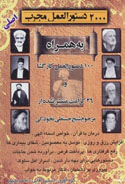In the school of Imam Husain (AS) - 1

We would be presenting you an interesting series on the start of the mourning month of Moharram, the month in which every year we commemorate history’s most heartrending tragedy that occurred in Karbala in 61 AH, corresponding to 680 AD, where the grandson of Prophet Mohammad (blessings of God upon him and his progeny), was cruelly martyred along with his small group of followers made up of his brothers, his nephews, his friends, and his sons, including the 6-month infant, Ali Asghar.
Today we present you the first part of this 10-part series, titled “In the School of Imam Husain (AS)” in order to provide answers to a series of questions. The questions that arise in this regard are: What was the main motive of the uprising of Imam Husain (AS)? Was the main reason behind his movement to take over the political rule of the Islamic state? Was it to reform the Muslim society? Was it not possible for him to achieve his goal through compromise with Yazid the self-styled caliph of the Omayyad regime, so that the Ahl al-Bayt or the Blessed Household of the Prophet would be spared of murder, pillage, and imprisonment? In this series, we respond to these questions, and study the different aspects of the life of the person whose martyrdom saved Islam.
A famous statement from the Seal of Divine Messengers, recorded by both Sunni and Shi’a Muslims, hails Imam Husain (AS) as the “Beacon of Guidance and Ark of Salvation”. In view of this, firm adherence to the path and ethical virtues of the Martyr of Karbala undoubtedly grants prosperity to the individual and the community in the transient world and salvation in afterlife. An incident cited by hadith scholars of both the Sunni and Shi’a schools records that one day as the toddler Imam Husain (AS) approached his grandfather, the Prophet took him in his lap, and called him “the adornment of the heavens and the earth”. When asked by a person who was standing nearby whether anyone else besides a prophet could be an adornment of the heavens and the earth, the Prophet replied: “By God, the status of Husain is more exalted in the heavens than on the Earth.”
The first and most important characteristic of Imam Husain (AS) was that despite his unsurpassed merits, he regarded himself as a humble servant of God. This behaviour was evident in all aspects of his life, including his deeds and remarks. He strove to the contentment of the Almighty Creator Alone. During the Godless rule of Mu’awiyah ibn Abu Sufyan, who had seized the caliphate or political rule of the Islamic state from his elder brother, Imam Hasan (AS), Imam Husain (AS) patiently safeguarded the genuine teachings of Islam. When Mu’awiyah, contrary to the treaty he had signed with Imam Hasan (AS), nominated the libertine Yazid as the next caliph, Imam Husain (AS) decided to stage his historic uprising for the sake of God, and in order to protect Islam, he selflessly sacrificed his life, along with that of his dear and near ones. He was the symbol of worship of God, and in fact the “Qur’an an-Nateq” or the Talking Qur’an. He performed the Hajj pilgrimage at least 25 times on foot from his hometown Medina. Every day he would perform a thousand raka’at of the ritual prayer. So staunch was his devotion of God Almighty that on the 9th of Moharram when the cowardly hordes of Yazid intended to start the battle, he sought a night’s respite, in order to spend it in prayer and supplication to God until the break of dawn. On the fateful Day of Ashura, while staging the immortal epic, in spite of acute thirst, sufferings, and growing sorrow, as his near and dear ones were martyred one after another, including two of his sons – the 18 year old Ali Akbar and the six-month infant Ali Asghar – Imam Husain (AS) was the least perturbed and was entirely resigned to the Will of God.
In order to provide a proper picture of the events leading to the tragic martyrdom of the grandson of the Prophet, it is essential to refer to the deviations that began after the passing away of the Prophet of Islam and the seizure of the political rule of the Islamic state from his divinely-designated vicegerent, Imam Ali ibn Abi Taleb. With the passage of time these deviations intensified. In a surprising move, the second caliph Omar ibn Khattab appointed the faithless Omayyad Mu’waiya ibn Abu Sufyan, a very late and reluctant convert to Islam, as governor of the newly conquered large Province of Sham or the Levant that includes today’s countries of Syria, Jordan, Lebanon and Palestine. The next caliph, Othman bin Affan, who was also an Omayyad reinstated Mu’awiya, which enabled the latter to consolidate his power in the Levant for another 12 years. On the murder of Othman when the Commander of the Faithful, Imam Ali (AS) reluctantly took up the caliphate or political rule of the Islamic state as the leaderless masses beseeched him, one of his first acts was to dismiss Mu’waiya from the governorship, an order that the latter disobeyed and came out into open rebellion against the Imam. In 38 AH, the War of Siffeen was fought, in which Mu’awiya through deceit and trickery escaped defeat and death. In 41 AH, some six months after the martyrdom of Imam Ali (AS), he resorted to threats, aggression and bribes against the latter’s divinely designated successor, the Prophet’s elder grandson, Imam Hasan (AS), to mislead the people and seize the caliphate as per a treaty, whose contents he violated. In 50 AH, Mu’awiya had Imam Hasan (AS) martyred through poisoning, and during his 19-year rule as caliph, he undermined the ethereal values of Islam.
This sordid trend continued and escalated with ascension of Yazid to the caliphate. Yazid, on the assumption of cementing his rule, demanded allegiance from Imam Husain (AS), by any means possible. The Imam refused to acknowledge the Godless rule of the libertine Yazid, since an allegiance to a tyrant meant collaboration in the massacre of innocent people, and undermining of Islam. Circumstance forced Imam Husain (AS) to leave Medina for Mecca, from where he had to leave for Iraq on the invitation of the people of that land. In a meeting with poet, Farazdaq, the Imam noted: “The followers of Yazid do not comply with God, are corrupt, drink wine, and seize the belongings of the poor and needy. And I am the most qualified individual for an uprising for the sake of religion, and Jihad for the sake of God.”
The uprising of Imam Husain (AS) thus started and changed the course of history. The Imam sent his cousin Muslim ibn Aqeel as emissary to the people of Iraq in order to assess the situation of Iraq. Muslim was a brave and pious person, and towards the closing days of 60 AH, after having taken oath of allegiance to the Imam from thousands of people who had sent detailed letters to the Imam, he was deserted by the people of Kufa on the arrival in that city of the tyrannical governor of Basra, Obaidullah ibn Ziyad. After a brave fight, Muslim was treacherously martyred, and on hearing the news, Imam Husain (AS) who was on his way to Iraq, was saddened.
That was all for today. Tomorrow we will continue with our discourse of the subsequent events in the second part of In the School of Imam Husain (AS).
مطالب مشابه با این موضوع:
وبگــــــــــردی طلبۀ پاسخگو
- فایل اعمال و رفتار های خلاف قانون جناب آقای حسن روحانی
- در کنج خانه طلبهها چه میگذرد؟
- سکوت چند ساله مسئولان حوزه در قبال حملات وحشیانه به طلاب!
- می گویند که مملکت مملکت آخوندهاست!!
- یک ماجرای تلخ که خانم ها با تأمل بیشتر بخونند
- جریان های تکفیری موجود در عراق و نحوه شکل گیری آنها
- سیر تکاملی تفکر سلفیه چگونه بوده است؟
- بداء در قرآن و حدیث چگونه مطرح شده است؟
- پیامبر (ص) با مخالفین خود چگونه بر خورد می کرد؟
- سبک زندگی حضرت زهرا سلام الله علیها
- ملاک کرامت و شرافت افراد، انسانیت است یا جنسیت؟
- رنگ و پوشش های رنگی در اسلام
- حجاب، زنان را افسرده میکند و مانع پیشرفت اجتماعی آنهاست!!!
- علوم لدنی معصومین
- مگر ولی فقیه معصوم است که ولایت مطلقه دارد؟
- اگر خدا ازعاقبت ما اطلاع دارد قیامت برای چیست؟
- آیا بجای نماز خوندن، پیانو یا سه تار بزنم؟
- چرا مراسم عزاداري امام حسين(ع) پيش از شهادت ايشان صورت ميگيرد؟
- چرا امام حسين(ع) در كربلا براي رفع تشنگي از خداوند طلب باران نكرد؟
دانــــــلود های مفیـــــــــــــــــــد
- دانلود پاورپوینت شناخت وهابیت و صهیونیسم و ارتباط با همدیگر
- دانلود دو پاورپوینت اجرای عید غدیر خم
- دانلود پاورپوینت احتجاج اميرمؤمنان (ع) به غدير
- پژوهشی در کلام و پیام مقام معظم رهبری پیرامون ماه رمضان
- خطبه شعبانیه و خطبه امیرالمومنین(علیه السلام) پیرامون روزه و ماه رمضان
- دانلود پاورپوینت و pdf تفاوت های زن و مرد
- دانلود جزوه ساعات سعد و نحس(زمان نوشتن دعا)
- تقویم مذهبی شمیم یار 96 مخصوص کامپیوتر
- دانلود نرم افزار «شیعه شناسی»
- دانلود پاورپوینت ساختار خانواده و مسایل آن
- دانلود کتاب دایره المعارف جنسی
- دانلود نکات جذاب دوران عقد
- دانلود کتاب درمان سرد مزاجی و بی میلی جنسی بانوان
- دانلود کتاب حسادت کودکان
- دانلود کتاب درمان خستگی وناتوانی جنسی
- دانلود پاور پوینت اسیب های ازدواج وخانواده
- دانلود پاورپوینت هشت گام برای تحقق رویا به واقعیت
- دانلود پاورپوینت تقویت اراده
- دانلود پاورپوینت موفقیت وروشهای رسیدن به ان
- دانلود پاورپوینت هنر رفتار با افراد دشوار
- دانلود پاورپوینت جملات جالب وجذاب روحیه بخش بزرگان
- دانلود پاورپوینت راههای مقابله ودرمان استرس
- دانلود پاورپوینت نیازهای اساسی کودکان
منبــــرهای مکــــــــــــــــــتوب
- منبر مکتوب: روز عرفه و فرصت ها
- منبر مکتوب: سبک زندگی امام باقر علیه السلام
- منبر مکتوب: سه نیاز مومن (امام جواد علیه السلام)
- سخنرانی سلسله ای و چند جلسه ای مناسبت ماه رمضان
- دانلود 30 جلسه سخنرانی ماه مبارک با موضوع تنها مسیر
- موضوعات پیشنهادی سخنرانی برای محرم
- فضائل حضرت قمر بنی هاشم علیه السلام
- برکات وجود ابا عبدالله علیه السلام بر عالم
- بررسی بُعد اخلاقی،عبادی و عرفانی عاشورا
- آخرين وصيت امام حسين عليه السلام
- اولین علت رویاروی در کربلا؛ دوری از یاد خدا
- هميشه حزن؟ شادي چرا نه؟ - شب دهم محرم
- چرا نفرين ؟ - شب نهم محرم
- نماز ظهر عاشورا - شب هشتم محرم
- فلسفه عزاداری - شب هفتم محرم
- دفاع از دین - شب ششم محرم
- فلسفه حضور خانواده سيد الشهداء - شب پنجم محرم
- علم امام علیه السلام به شهادت - شب چهارم محرم
- فقدان شرایط امر به معروف و نهی از منکر- شب سوم محرم
مناظرات طلبه پاسخگو
جدیدترین های زبان انگلیسی
- Islam and Its Social System
- Duties of Man Towards the People
- Islam Various Systems
- Attributes of The Real Follower of Imams in Their Teachings
- Who is a Real Shia Muslim?
- RIGHTS OF SCHOLARS
- Islam Attacks Slavery 1
- The Advantages of Religion 2
- The Clearest Reason for Free Will
- Sheikh Zakzaky to be released on bail
- Brief History of Religions
- Is It Necessary For Man To Follow A Religion?
- The Advantages of Religion 1
- Who Is Almighty Allah?
- What are the differences between Shia and Sunni Muslims؟
- The Rights Islam Offers to Women
- How I find that Islam does not Oppress Women?
- URGENT MEDICAL TREATMENT FOR SHEIKH ZAKZAKY
- The motto of this year’s book fair is “Reading Is Ability”.
- Fundamental principles of Islam
بیشترین دانلود ها
- دانلود صوتي تکنیک های نزدیکی زن و شوهر (106477)
- دانلود رایگان کتاب خواص سوره های قرآن (51532)
- دانلود پاورپوینت بسیار مفید مهارت های زندگی (34854)
- دانلود كتاب مسائل جنسي و زناشوئي در احاديث (31740)
- دانلود پاورپوینت و pdf تفاوت های زن و مرد (29609)
- دانلود پاورپوینت های آموزش پیش از ازدواج (28091)
- دانلود کتاب دایره المعارف جنسی (27780)
- دانلود بسیار مفید پاورپوینت آئین همسرداری (27046)
- دانلود پاورپوینت آموزشی بررسی رابطه دختر و پسر (26835)
- دانلود 110جلد کتاب بحارالانوار علامه مجلسی ره (26343)
- دانلود كتاب فرق و مذاهب كلامي استاد رباني گلپايگاني (25997)
- دانلود كتاب دختران خوب به آسمان می روند دختران بد به همه جا (25744)
- دانلود کتاب آموزش جنسی آقایان (25577)
- دانلود کتاب درمان سرد مزاجی و بی میلی جنسی بانوان (24175)
- دانلود نکات جذاب دوران عقد (23323)
- دانلود نرم افزار «شیعه شناسی» (21592)
- دانلود کتاب درمان خستگی وناتوانی جنسی (21553)
- دانلود پاورپوینت تهاجم فرهنگی (20593)
جدیدترین مطالب سایت
- پاسخ به شبهات ولایت (3567) بازدید
- پاسخ به شبهات ولایت (3514) بازدید
- اذان در جامعه اسلامی نماد چیست ؟ و چرا فقط سه بار در روز تکرار می شود ؟ (3227) بازدید
- باتوجه به عادل بودن خداوند چرا بعضی از انسانها را ناقص الخلقه آفریده است ؟ (3212) بازدید
- ویژگی خاص قرآن چیست که کسی نمی تواند مانند آن را بیاورد ؟ (3197) بازدید
- با توجه به ترک خود ارضایی عوارض آن هنوز در من هست چگونه آن را برطرف کنم ؟ (4659) بازدید
- آیا بدن اخروی مانند بدن مادی است ؟چهره ی واقعی انسان در قیامت چگونه است ؟ (3950) بازدید
- آیا ادعای ملاقات امام زمان (عج) از جانب برخی افراد صحت دارد ؟ (3439) بازدید
- چرا به اصول و قواعد دین اسلام توجه نمی شود و پذیرش آن از سوی پیروان ادیان دیگر سخت است ؟ (3795) بازدید
- فلسفه وجود لباس روحانیت در عصر حاضر چیست ؟ (3057) بازدید
- آیا وظیفه یک روحانی تنها راهنمایی مردم و فعالیت و تدریس در حوزه هاست ؟ (2500) بازدید
- آیا نظریه تناسخ از دیدگاه اسلام پذیرفته شده است ؟ (4042) بازدید
- آیا توصیف بهشت و جهنم در قرآن تمثیل هایی برای درک بهتر آن جهان است ؟ (3692) بازدید
- با توجه به اینکه اسلام کاملترین دین هست چرا ما نسبت به کشور های غیر مسلمان عقب مانده تر هستیم ؟ (5413) بازدید
- نقش امام و رهبر در جامعه اسلامی چیست ؟ و اگر نباشد چه اتفاقی می افتد ؟ (3716) بازدید
پربازدیدترین های سایت
- زنی هستم که میخواهم به شوهرم خیانت کنم!!! (603117)
- آيا زن شوهر دار بخاطر رفع نیاز جنسی اش ميتواند صیغه شود؟ (498436)
- دوست دخترم حامله شده چکار کنم؟ (396975)
- میل جنسی زیادی دارم و به شدت داره منو عذاب می ده (337894)
- دیدن فیلم های مبتذل زن و شوهر برای تحریک شدن جنسی (216273)
- چگونه همسرمان را آماده آميزش جنسي كنم؟+18 (211864)
- حکم شرعی نزدیکی از پشت! (206558)
- خانم هایی که می خواهند طلبه شوند بخوانند!!! (203409)
- زنم رابطه جنسی برقرار نمیکند!!! (198118)
- از تجربه های تلخ و تکان دهنده دختران بخوانید شاید... (171308)
- گناه با محارم خود داشتم! (144856)
- رابطه جنسی دهانی حكم چيست؟ (129342)
- محرمات و مکروهات و مستحبات حائض+حکم ورد به امکان مقدسه (128317)
- به رابطه خانمم با خواهر زاده اش مشکوکم؟ (121288)
- سفارش اسلام در مورد آمیزش صحیح چیست؟ (98331)
- نام كتاب حضرت نوح و حضرت ابراهیم؟ (95473)
- با زنان چشم سبز ازدواج نکنیم؟ (92697)


















